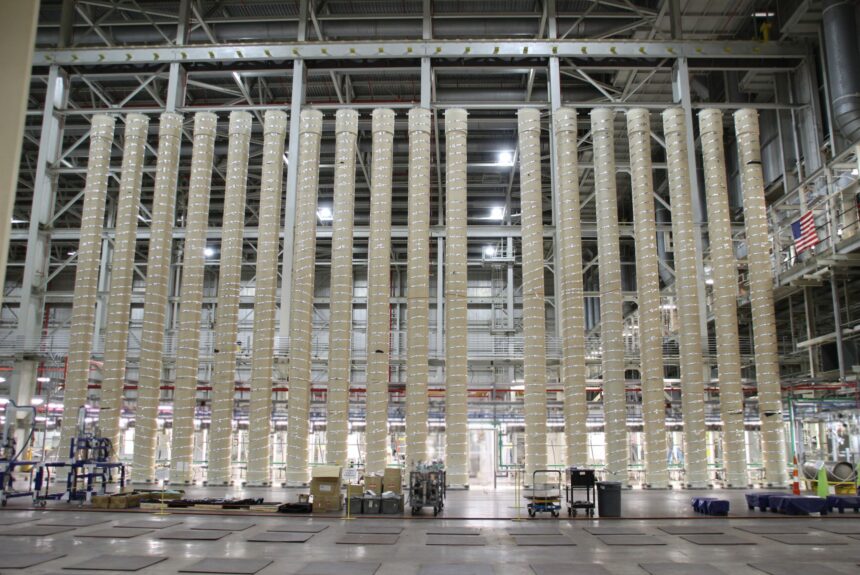Sonal Patel of Power writes about Centrus, which has completed construction and the initial testing of a HALEU centrifuge.

- High-assay low-enriched uranium (HALEU) is needed to power advanced nuclear reactors, but the United States does not have a readily available supply of it.
- The HALEU supply chain is controlled primarily by Russia, which could slow down or prevent future energy innovation.
- Centrus, in partnership with the Department of Energy, has built a centrifuge that will produce 20 kg of HALEU in December of 2023 before producing 900 kg of HALEU in 2024.
- Public-private partnerships like these are critical to advancing energy innovation.
“Centrus’s pioneering cascade uses gas centrifuge machines, which feed uranium hexafluoride (UF6)—heated to a gaseous state—into a rotor inside the centrifuge machine. A rotor spinning at high speed inside a steel casing uses centrifugal force to concentrate the heavier U-238 isotopes at the outer wall of the rotor and the lighter U-235 isotopes toward the rotor center. The streams are then fed to the next machines in a “cascade” to achieve the desired level of enrichment. Centrus will use a 4.95% LEU feed material for its planned HALEU 16 AC100M-centrifuge cascade. It suggests roughly 85% of the separative work units (SWU)—a measure of enrichment needed to produce HALEU—is already contained in the LEU feed material.”
Read the full article here.
The views and opinions expressed are those of the author’s and do not necessarily reflect the official policy or position of C3.
